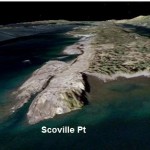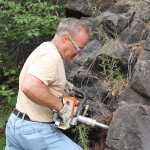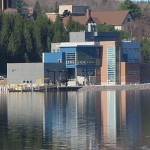 Aleksey Smirnov has been honored with a prestigious National Science Foundation Faculty Early Career Development Award, commonly known as a CAREER Award. The five-year, $470,000 grant will underwrite his research on the ancient history of the Earth’s magnetic field and how it may have affected the planet’s geology and even the evolution of living things.
Aleksey Smirnov has been honored with a prestigious National Science Foundation Faculty Early Career Development Award, commonly known as a CAREER Award. The five-year, $470,000 grant will underwrite his research on the ancient history of the Earth’s magnetic field and how it may have affected the planet’s geology and even the evolution of living things.
MORE: From the Michigan Tech Research Magazine 2013 article by Dennis Walikainen



